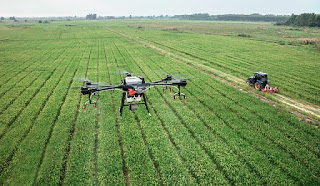
What is Conventional Farming?
When we talk about conventional farming, we're diving into a traditional approach to agriculture that has shaped the food systems of many countries. So, what exactly is conventional farming? Let’s break it down.
Conventional farming is the most widely used agricultural method, characterized by its use of synthetic chemicals, large-scale machinery, and monocultures. Monoculture refers to growing a single crop over a large area, which contrasts with diverse farming systems that cultivate multiple crops together.
In conventional farming, synthetic fertilizers and pesticides are commonly used. Fertilizers add essential nutrients to the soil, while pesticides help control pests and diseases that threaten crops. However, these chemicals can have downsides. Over time, they may lead to soil degradation, water contamination, and harm beneficial insects.
To illustrate, let’s look at a couple of real-life examples. In the Midwest of the United States, conventional farming practices dominate, with vast fields of corn and soybeans. These practices have led to impressive yields but have also contributed to soil erosion and nutrient runoff into waterways, causing algae blooms and affecting aquatic life.
In contrast, take a look at the high yields of rice production in parts of Asia. While conventional methods have helped achieve impressive output, they've also faced challenges like water overuse and pollution from chemicals.
So, how does conventional farming impact our self-sustainable city project? While conventional farming methods can boost productivity, our project focuses on sustainable practices to minimize environmental impact. By embracing natural farming techniques and permaculture principles, we aim to avoid the pitfalls of conventional methods. Our approach uses organic fertilizers, integrates pest management, and supports diverse plantings to enhance soil health and reduce pollution.
We believe that these sustainable practices not only protect the environment but also contribute to a more resilient and productive agricultural system. How do you feel about the balance between conventional and sustainable farming? Share your thoughts or questions in the comments below—we’d love to hear from you!
![Self-Sustainable City - Ramakrishna Surathu [Official Website]](https://blogger.googleusercontent.com/img/a/AVvXsEivh2bAyNCG-DxYf4p_lHLcFQx1i8MvbBv91UgzKqAFrNMhT8xW-fwxgNJTdtojgb9aYXiG9EdNYLo8tNmtaakyq-zmnaCeeUGMdpvJ8iOaVzd2tSKEC2UrUXzFJa952LPF-OngfPenpbFOj7b8AcbYtPGSng6xbGr-_NwEIRpXZg_QdKLGRMGeg5pWmtaQ=s1280)
No comments:
Post a Comment